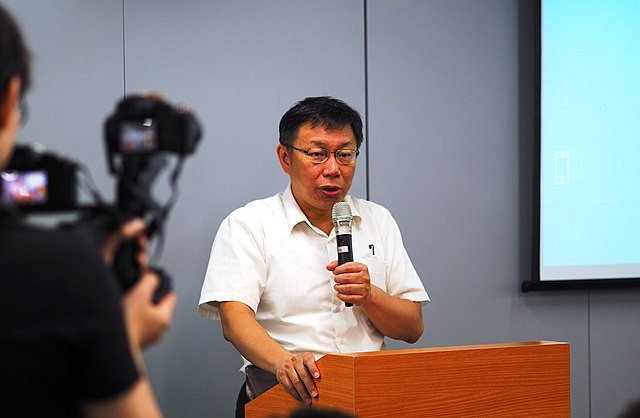Ko Wen-je, a prominent figure in Taiwanese politics and former presidential candidate, has been indicted on multiple corruption charges, marking a significant turn in his political career. The 65-year-old founder of the Taiwan People's Party (TPP) faces accusations of accepting bribes and misappropriating political donations during his tenure as mayor of Taipei and his recent presidential campaign.
Prosecutors unveiled the charges on Thursday, alleging that Ko accepted bribes totaling approximately half a million dollars linked to a real estate development project owned by Core Pacific City group. The indictment states that Ko facilitated the company's evasion of city building regulations in exchange for financial benefits. He is also accused of mishandling campaign funds during his unsuccessful presidential bid in January.
"The defendant, Ko, violated his vow as mayor to not accept bribes and abide by our national laws. Instead, Ko intended to help the group obtain billions of dollars in illegal benefits, while collecting millions in bribes," said lead prosecutor Kao Yi-shu during a press briefing. If convicted, Ko could face up to 28.5 years in prison.
The charges have sent ripples through Taiwan's political landscape, particularly for the TPP, which Ko founded in 2019 to challenge the dominance of the Democratic Progressive Party (DPP) and the Kuomintang (KMT). Despite finishing third in January's presidential race, Ko garnered over 25% of the vote, signaling substantial support for his third-party platform, especially among younger voters seeking alternatives to Taiwan's traditional political duopoly.
Ko has denied all allegations of wrongdoing. His party, the TPP, has called the charges politically motivated, with central committee member Lin Fu-nan labeling the case as "political persecution." Lin added, "With this kind of abuse of power, the government is being reduced to a political thug."
The controversy comes amid allegations that the DPP, the ruling party, is using judicial processes to suppress political opponents. Supporters of Ko have staged protests, accusing President Lai Ching-te's administration of leveraging the charges to stifle the opposition. Critics argue that the timing of the indictments, following the TPP's alliance with the KMT to pass contentious legislation, raises questions about political interference.
Ko's political journey has been marked by dramatic shifts and controversies. Rising to prominence during the 2014 Sunflower Movement, which opposed Beijing's influence over Taiwan, Ko positioned himself as an independent candidate and won the Taipei mayoralty. During his tenure, his administration's policies toward China softened, expanding Taipei's ties with the mainland, which drew criticism from pro-independence factions.
Known for his unconventional style, Ko has been described as a "wildcard" in Taiwanese politics. His campaigns have included quirky tactics, such as starring in a rap video during his 2018 mayoral re-election bid. Despite losing the 2024 presidential election, Ko vowed to continue his political career and had expressed intentions to run again in 2028.
However, the current wave of prosecutions against him and members of his party casts doubt on the TPP's ability to recover. Several TPP officials have also been charged with misusing political donations, further complicating the party's position.






